They were outnumbered, outgunned, and outmanned.
There was no reasonable belief they could win. It was a stop-gap measure at best. What was at stake? Only the Hawaiian Islands and the west coast of The United States.
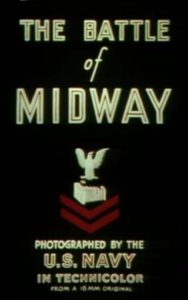 This was the Battle of Midway, June, 1942. No military had ever won more territory in six months than had Japan. Its Pacific Empire ranged from the Indian Ocean to the coast of the Aleutian Islands, and from the Russian border to Wake Island in the Pacific. At Midway, Americans were outnumbered three air craft carriers to four. Japanese cruisers, battleships, destroyers, and aircraft were far superior in numbers and technology than their American counterparts. In short, the Japanese Pacific Fleet was stronger, larger, and more experienced than the American forces in June, 1942. Yet the Japanese Navy was roundly defeated by an outnumbered and inexperienced American fleet at Midway. Why?
This was the Battle of Midway, June, 1942. No military had ever won more territory in six months than had Japan. Its Pacific Empire ranged from the Indian Ocean to the coast of the Aleutian Islands, and from the Russian border to Wake Island in the Pacific. At Midway, Americans were outnumbered three air craft carriers to four. Japanese cruisers, battleships, destroyers, and aircraft were far superior in numbers and technology than their American counterparts. In short, the Japanese Pacific Fleet was stronger, larger, and more experienced than the American forces in June, 1942. Yet the Japanese Navy was roundly defeated by an outnumbered and inexperienced American fleet at Midway. Why?
The Japanese military was saddled with a war doctrine that allowed no creativity and demanded rigid, rote compliance to dictatorial standards. But at Midway American forces adapted, flexed, adjusted, took risks, and became nimble.
The academe, university learning, is the coming Battle of Midway for our students. American culture is an intellectual battle ground. American university culture is committed to a dominant voice which is the rigid, rote, and dictatorial compliance to whatever sacrosanct idols our culture creates. Much like Midway, our students will face an imposing belief system.
Students will encounter a world where
Journalists promote ideas with no factual evidence with anonymous sources
Professors prompt rejection of ideas by belittling others, denigrating alternatives
Politicians stand for the next election rather than standing for truth
Social media platforms sensationalize headlines
Friends will show themselves enemies by allowing falsehood into conversations
 Yet, in the Senior Thesis class – indeed, throughout TMS – we have taught students tools which, if used, will allow them a lifetime of nimble flexibility in facing any opposing viewpoint. We have taught them how to search for knowledge, critique interpretations, write cohesively, speak coherently, and think biblically. They have done their homework.
Yet, in the Senior Thesis class – indeed, throughout TMS – we have taught students tools which, if used, will allow them a lifetime of nimble flexibility in facing any opposing viewpoint. We have taught them how to search for knowledge, critique interpretations, write cohesively, speak coherently, and think biblically. They have done their homework.
It’s interesting to me that the phrase “do your homework” persists in our cultural conversation. When we say “He didn’t do his homework” we mean he didn’t do any research, he didn’t think clearly. The seniors have learned the hard lesson Proverbs 18.17 teaches us: the first one who presents his case sounds right until another takes the stand.
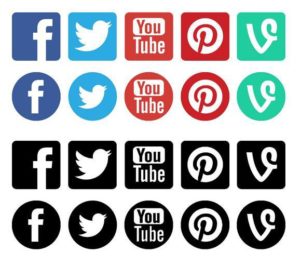 Social media favors those who do not do their homework. Folks on Facebook generally do not do research before they post the latest diatribe, meme, or forwarded article. Internet sites such as Twitter produce a combative atmosphere where folks fling words, articles, and epithets back and forth at each other without a thought. And I mean, without a thought.
Social media favors those who do not do their homework. Folks on Facebook generally do not do research before they post the latest diatribe, meme, or forwarded article. Internet sites such as Twitter produce a combative atmosphere where folks fling words, articles, and epithets back and forth at each other without a thought. And I mean, without a thought.
You see thinking has come upon hard times in the social media age. It’s not as if this is anything new. Humans have been adding their two cents ever since Eve decided to add to God’s words in Genesis 3.
How do we combat empty, emotive rhetoric? How do we respond to an American culture driven by the immediate & expedient? What wisdom will be provided in the glut of 2017 information overload? I offer five study ideals, preparing for the battle of ideas: students’ own personal Midway.
 Reading begins study
Reading begins study
One senior said, “I thought you were just making us do busy work until I realized that doing annotations for bibliographies actually helped me write my paper!” “Reading” is the first step in study. We accumulate, listen to and ponder other points of view. Creating 100 word annotations for a just-read book or article means we invest time with someone else’s ideas. And yes, reading takes time. A young man, a student in an M.A. course I teach, called to ask, “I am having to make decisions without the time to consider the full scope of the problem. Doc, what should I do?” My response? “You need to take 4-6 hours every week to read, study, think, and write about the issues you face in your context.” I said, “You are spending time in study to prepare for the battle of ideas you face, to protect and defend your people.” The more we listen to others, the more we discover that reading is another Midway – the first step in study
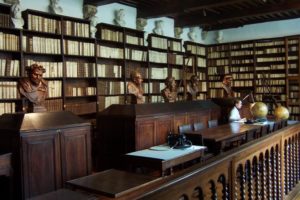 Research is the basis of study
Research is the basis of study
One of our seniors admitted “I have not done a research paper before. It was hard until I realized that that I had to do research.” At first blush that statement makes one smile. But upon further consideration, as I’ve already suggested, research is not a hallmark of our age. Faced with instantaneous communication young people are taught that talk-without-thought is good. When I talk with students in higher education they will tell you reliable research still wins the day. As one of my Comenius students told me toward the end of the semester, “I knew I had the best argument when my liberal professor told me he didn’t want to hear from me anymore.” You see research broadens a person’s thinking, beyond the doctrinaire, demanding, dominating cultural voices of our day. Research broadens thinking, creating grounded Christian thinkers, preparing students for their university Midway.
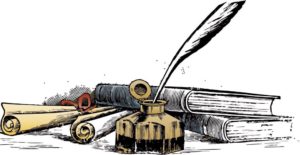 Writing broadens study
Writing broadens study
One senior told me, “I was having real problems with writing the paper but as I kept writing the light bulb went on!” Writing depends on research. Research depends on reading. Reading depends on incremental learning. “As much as it pains me to admit it,” another senior said, “You were right.” He continued, “You made us go through this step-by-step process of building knowledge,” others began to nod their heads. Finally he admitted, “I did not like it. I just wanted to get the final paper out of the way. But you kept pacing us, slowing us down. You wanted us to reflect on what we were writing. And I was surprised how helpful the progression was for me.” Writing is risk, placing one’s words in public view. As soon as you write something it is open for critique. But students have been taught how to write. Their papers allure the reader, drawing them into the subject, solidifying the research, logically defending a position, passionately communicating a Christian viewpoint. Flexible and adaptable, TMS seniors are prepared for their Battle of Midway in education.
 Critique benefits study
Critique benefits study
Oh, if y’all had only been a fly on the wall first semester! “Wail and moan” would be an apt description of senior responses to my critique of their writing. Fast forward to a few weeks ago as they were handing in their final thesis, wail and moan turned to “Boy, your critiques from first semester really helped me to write second semester.” Critique is a part of life. I am not speaking about the bombastic, vitriolic venom that passes for cultural conversation today. I am speaking about critique that investigates sources of knowledge, structures of authority, standards of interpretation, and strands of cultural mindset. I still shake my head when adult Christians question whether or not seniors in a Christian school should read books like Dracula, Frankenstein, or Dr. Jekyll and Mr. Hyde. Gothic horror novels produce the same response from seniors every year: “I was so surprised how the morality tales of Gothic horror novels still apply today.” You want 18 year olds to leave TMS prepared to critique 21st century issues? Evaluation of current culture is best accomplished when students discover that so called “old books” deal with the same questions needed in “new days.” Taught to think Christianly, TMS seniors are prepared with tools which will serve them in the battle for ideas.
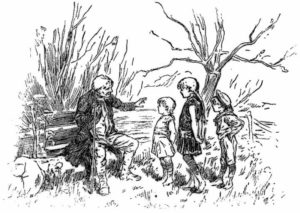 Approach broadcasts study
Approach broadcasts study
In one exchange this semester I asked a senior, “How many times did I mention the importance of storytelling for your presentation?” Without hesitation he responded, “About 50 or 60.” All year long we discussed the importance of knowing an audience, looking for the “in,” not constructing pat-answers but adapting to the discussion by telling stories. Knowing how to present a case is as important as what a case presents. What do business leaders say? “Give me your elevator speech.” By that, business people mean “Make your point memorable. You only have 30 seconds.” Did you know that data system firms and science labs are looking for storytellers? Why? Because no one wants to listen to their data. But if data can be told through story, well . . . Today you will hear short speeches on data-driven ideas such as muscular dystrophy and musical therapy for autism. But you will hear the data through story. Flexibility in approach is well served through story, nimbleness necessary for any Midway.
 I love flying Southwest Airlines. Just last week Harvard Business Review ran an essay entitled, “To Change Your Strategy, First Change How You Think.” [link here] I was not surprised when the authors used Southwest Airlines as the model for their title. You want to know why Southwest has 43 consecutive years of profitability, why every other airline tries to copy their success, why Southwest is consistently one of the best companies for which to work? Southwest focuses not on product but on people. Herb Kelleher, co-founder of Southwest, says, “I tell our employees, we serve people; we just happen to use airplanes.”
I love flying Southwest Airlines. Just last week Harvard Business Review ran an essay entitled, “To Change Your Strategy, First Change How You Think.” [link here] I was not surprised when the authors used Southwest Airlines as the model for their title. You want to know why Southwest has 43 consecutive years of profitability, why every other airline tries to copy their success, why Southwest is consistently one of the best companies for which to work? Southwest focuses not on product but on people. Herb Kelleher, co-founder of Southwest, says, “I tell our employees, we serve people; we just happen to use airplanes.”
 You want to know why the TMS model continues to attract parents and students? We serve people; we just happen to use books.
You want to know why the TMS model continues to attract parents and students? We serve people; we just happen to use books.
We help students harness the tools of learning so as to apply them to any situation or circumstance they encounter in the future. American ingenuity, flexibility and improvisation was the intellectual key to victory at Midway. If a commander (or a teacher) becomes locked in to a certain approach they will never be free to look at the situation and nimbly adjust. Key to the educational life is having tools and knowing how to use them.
 The young people whom you will hear today are about to enter battle, the battle for ideas. They have, for the most part, been raised in a conservative mindset. They have been taught the need to preserve great ideas. They have been given privileges of learning others can only dream about.
The young people whom you will hear today are about to enter battle, the battle for ideas. They have, for the most part, been raised in a conservative mindset. They have been taught the need to preserve great ideas. They have been given privileges of learning others can only dream about.
But now, they are about to face Midway. They will be outnumbered, outgunned, and outmanned.
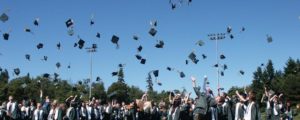 And I am not concerned. I pity their academic adversaries. The TMS Senior Class of 2017 are equipped with the tools of learning which will enable them to critique any idea. Yes, they will need guidance, encouragement, and camaraderie. And yes, they bear responsibility for using the tools. They have learned that their educational lives depend on broadminded thinking driven by The Transcendent Truth of Scripture and their Commander in Chief, Jesus.
And I am not concerned. I pity their academic adversaries. The TMS Senior Class of 2017 are equipped with the tools of learning which will enable them to critique any idea. Yes, they will need guidance, encouragement, and camaraderie. And yes, they bear responsibility for using the tools. They have learned that their educational lives depend on broadminded thinking driven by The Transcendent Truth of Scripture and their Commander in Chief, Jesus.
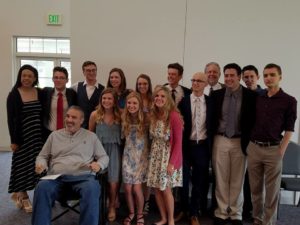 Graduation Speech given by Dr. Mark Eckel, Friday, May 26th, 2017 to the TMS Senior Breakfast. Dr. Mark Eckel is President of The Comenius Institute. [See our one minute video here.]
Graduation Speech given by Dr. Mark Eckel, Friday, May 26th, 2017 to the TMS Senior Breakfast. Dr. Mark Eckel is President of The Comenius Institute. [See our one minute video here.]
Picture Credit: Snappy Goat
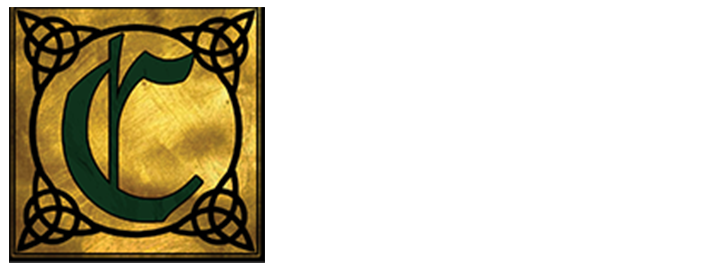
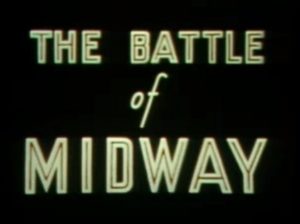



Excellent speech, well delivered!